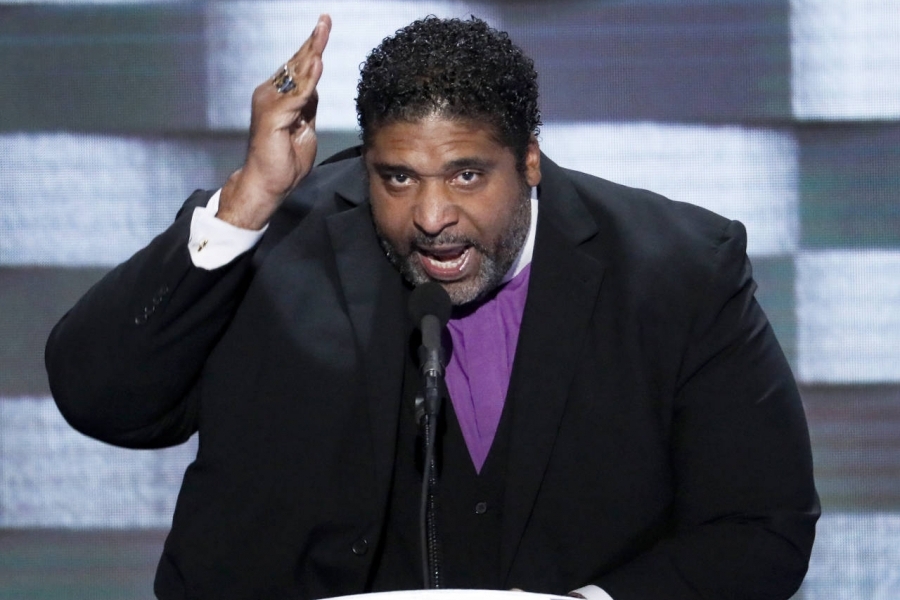At a Moral Monday gathering in North Carolina aimed at calling attention to voting rights, the movement’s founder the Rev. William J. Barber II met Bishop Tonyia Rawls. They have since rallied together for everything from healthcare to LGBT rights.
“In fact, sometimes Bishop Rawls and I play a trick on them, the adversaries,” Barber told a crowd of several hundred at the Philadelphia Marriott Downtown. They were attending the Jan. 19 kickoff of Creating Change 2017.
“She’ll get up and announce that she’s a black, gay, lesbian, same-sex married person, but she’s come to the podium to talk about voting rights. I’ll get up and say I’m a black straight man and I’ve come to talk about the LGBT community. My point is [they’re] not going to separate us anymore.”
Barber themed his keynote address around not letting wedge issues divide minority groups, especially as they fight to maintain and advance civil rights under the presidential administration of Donald Trump.
Barber highlighted HB2, the North Carolina law that many people know for legalizing discrimination against the LGBT community. But, Barber said, the bill also prohibited raising the minimum wage to $15 an hour and denied workers access to state courts to resolve discrimination claims. He said HB2 was not only anti-LGBT but anti-labor. He called for interest groups of all kinds to band together for common goals.
Barber moved deftly in the last third of his speech into outlining the history of the “southern strategy,” a Republican appeal to white Southern voters at the expense of black citizens.
He said by connecting black voters with progressive whites, Latinos and the LGBT community, states like Virginia, North Carolina, Georgia, Texas and Florida could become more progressive.
“And if you change the South, you change the nation,” Barber said to a round of applause. “That’s why we’ve got to work together. And we’ve got to know who our enemies are and who they aren’t.”
The opening of Creating Change 2017 also included a speech by Coya White Hat-Artichoker, who spoke about the protests at Standing Rock to protect the region’s access to clean water from those who wish to install the Dakota Access Pipeline.
“It is a spiritual mandate for our people that we resist,” Hat-Artichoker said.
The in memoriam for LGBT people who died last year was also moved to the start of the conference as opposed to the second day. Russell Roybal, deputy executive director of the National LGBTQ Task Force, which hosts Creating Change, said organizers hoped it would “ground the work” of the activists and advocates in attendance.

